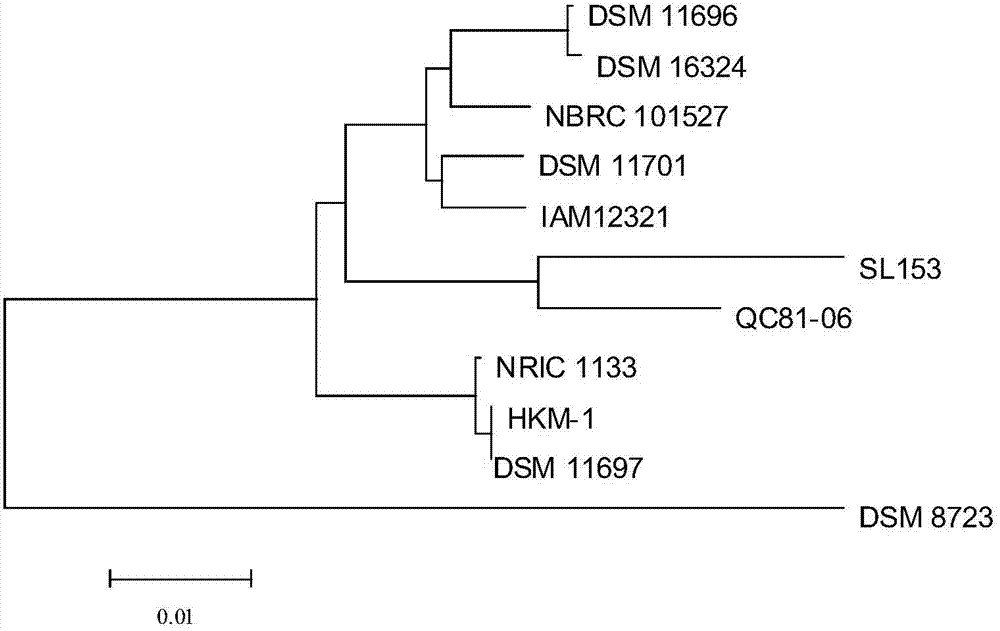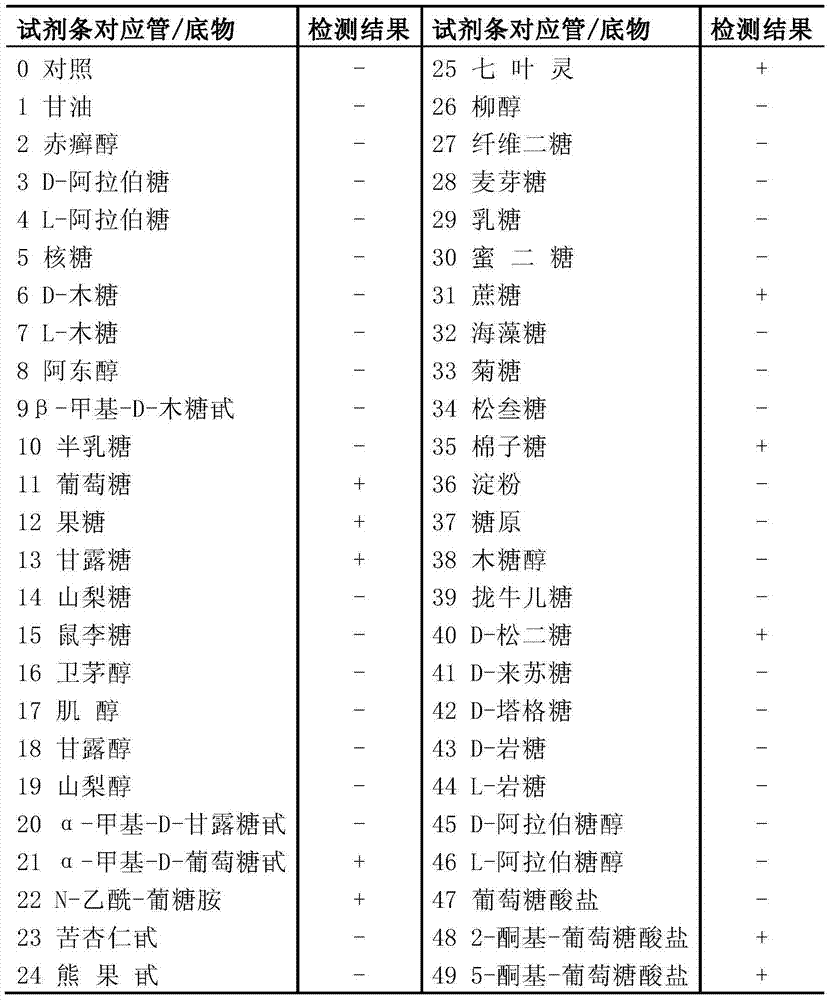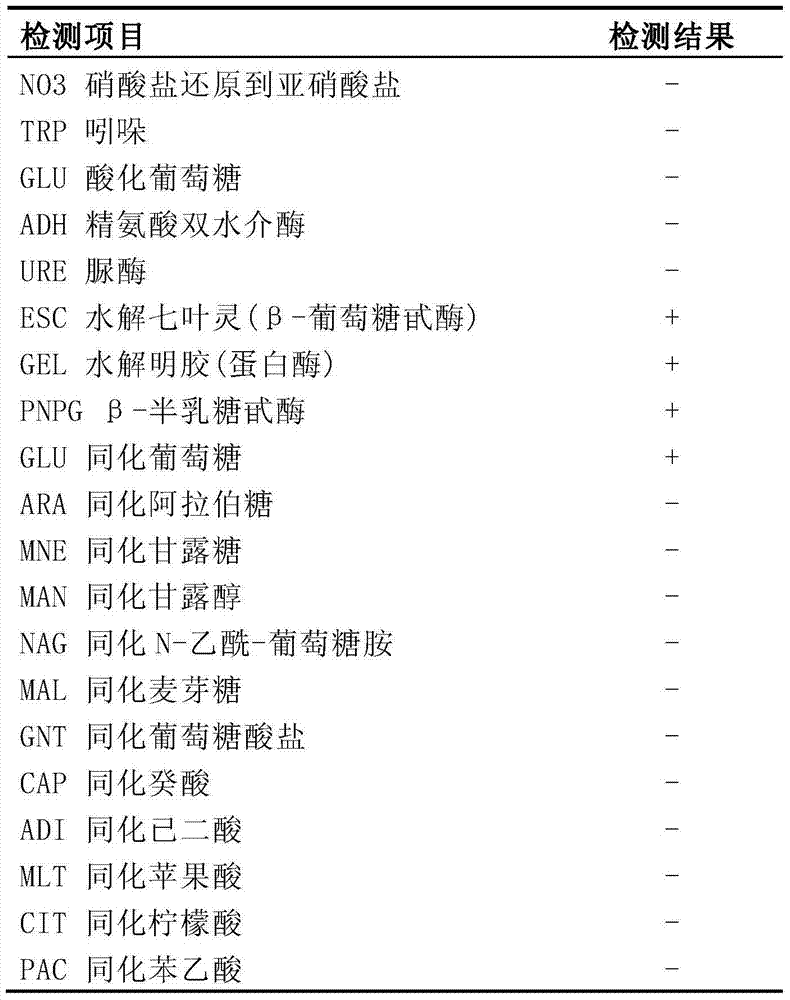Sporolactobacillus terrae and application thereof
A technology of Lactobacillus geosporum and Lactobacillus sp., which is applied in the field of D-lactic acid preparation, can solve the problems of long fermentation time and low concentration of D-lactic acid produced, and achieves the effects of low cost, simplified operation process and cost saving.
- Summary
- Abstract
- Description
- Claims
- Application Information
AI Technical Summary
Problems solved by technology
Method used
Image
Examples
Embodiment 1
[0071] Production of D-lactic acid by batch fermentation with Lactobacillus geobacillus (HKM-1) using glucose as carbon source and dry corn steep liquor as nitrogen source in Erlenmeyer flasks
[0072] The composition of each culture medium used in the present embodiment is as follows:
[0073] Each liter of the slant medium contains: 30-50 g of glucose, 5-10 g of yeast powder, 2-8 g of peptone, 50 g of calcium carbonate, 15-25 g of agar powder, and the balance is water. The pH of the slant medium was 6.0. It was sterilized at 115° C. for 15 minutes.
[0074] Each liter of the seed medium contains: 40-120 g of glucose, 5-10 g of yeast powder, 2-8 g of peptone, 50 g of calcium carbonate, and the balance is water. The pH of the seed medium is 5.0-7.0. It is sterilized at 115° C. for 15 minutes.
[0075] Each liter of the fermentation medium contains: 60-120g of glucose, 20g of corn steep liquor dry powder, 50g of calcium carbonate, and water as the balance; the pH of the ferme...
Embodiment 2
[0085] Lactobacillus geobacillus (HKM-1) was used to produce D-lactic acid by batch fermentation in a conical flask with sucrose as carbon source and dry corn steep liquor as nitrogen source:
[0086] The slant medium and seed medium are the same as in Example 1.
[0087] Each liter of the fermentation medium contains: 60-120g of sucrose, 20g of corn steep liquor dry powder, 50g of calcium carbonate, and water as the balance; the pH of the fermentation medium is 5.0-7.0. It is sterilized at 115°C for 15 minutes.
[0088] The method for producing D-lactic acid by fermentation comprises the following steps:
[0089] (1) Incline cultivation: same as Example 1;
[0090] (2) Seed culture: the same as in Example 1;
[0091] (3) Fermentation culture: Put 5mL of the seed culture solution prepared in step (2) into a 100mL Erlenmeyer flask filled with 40mL of fermentation medium, and culture it statically at 42°C. When the rate of change of D-lactic acid is 0, it is regarded as The f...
Embodiment 3
[0097] Lactobacillus geobacillus (HKM-1) was used to produce D-lactic acid by static fermentation in a Erlenmeyer flask with maltose as carbon source and dry corn steep liquor as nitrogen source at 42°C. Fermentation was terminated when the glucose and D-lactic acid levels remained stable.
[0098] The composition of each culture medium used in the present embodiment is as follows:
[0099] The slant medium and seed medium are the same as in Example 1.
[0100] Each liter of the fermentation medium contains: 60-120g of maltose, 20g of corn steep liquor dry powder, 100g of calcium carbonate, and water as the balance; the pH of the fermentation medium is 5.0-7.0, and it is sterilized at 115°C for 15 minutes.
[0101] The method for producing D-lactic acid by fermentation comprises the following steps:
[0102] (1) Incline cultivation: Same as Example 1.
[0103] (2) Seed culture: same as in Example 1.
[0104] (3) Fermentation culture: Put 5mL of the seed culture solution pr...
PUM
| Property | Measurement | Unit |
|---|---|---|
| optical purity | aaaaa | aaaaa |
Abstract
Description
Claims
Application Information
 Login to View More
Login to View More - R&D
- Intellectual Property
- Life Sciences
- Materials
- Tech Scout
- Unparalleled Data Quality
- Higher Quality Content
- 60% Fewer Hallucinations
Browse by: Latest US Patents, China's latest patents, Technical Efficacy Thesaurus, Application Domain, Technology Topic, Popular Technical Reports.
© 2025 PatSnap. All rights reserved.Legal|Privacy policy|Modern Slavery Act Transparency Statement|Sitemap|About US| Contact US: help@patsnap.com



